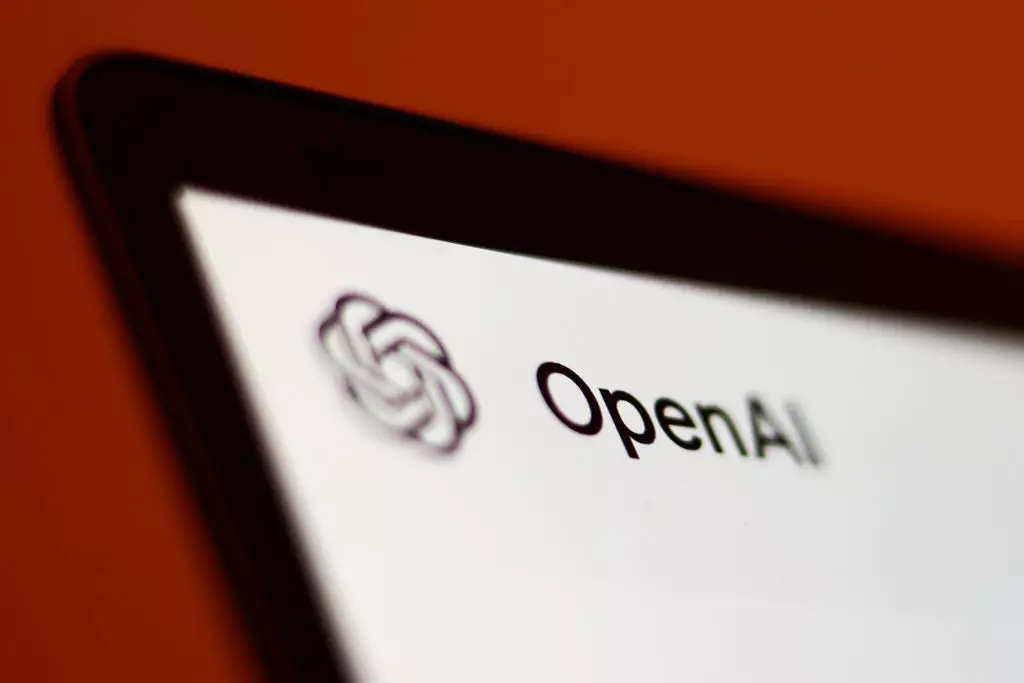The emergence of artificial intelligence has transformed industries globally, sparking a race among tech giants to establish a foothold in this rapidly evolving field. In a landmark initiative, OpenAI has unveiled a collaboration with SoftBank, Oracle, Microsoft, and other tech companies to create “The Stargate Project.” This ambitious undertaking aims to construct a network of data centers across the United States, proclaiming to secure American dominance in AI while promising significant job creation.
OpenAI, in partnership with notable investors and technology stalwarts, has outlined a vision that extends beyond mere infrastructure. The Stargate Project is designed to advance AI capabilities in the U.S., reinforcing the nation’s technological edge on the global stage. The initial phase will kick off with a large-scale data center located in Texas, with plans to branch out to additional states as the project gains momentum. In a bold financial stride, the companies together anticipate a commitment of $100 billion, with forecasts suggesting an overall investment of up to $500 billion within four years.
While the economic gains are evident, the project also touts its potential impacts on national security. The infrastructure is envisioned as a bulwark that would safeguard not only American interests but those of its allies. The project leaders, including SoftBank’s Masayoshi Son, OpenAI’s Sam Altman, and Oracle’s Larry Ellison, presented this agenda during an event at the White House, indicating a strong governmental backing crucial for navigating regulatory landscapes.
One of the most pronounced promises of The Stargate Project is its capacity to generate “hundreds of thousands” of jobs. While ambitious, such claims have historically been met with scrutiny in the tech industry. Many large data center initiatives have previously resulted in fewer job opportunities than initially projected, often due to automation and technological efficiencies. Critics voice concerns about the environmental implications of such massive data centers—water consumption, strain on local energy resources, and a shift toward fossil fuel reliance for power generation are common issues associated with these developments.
However, the staggering economic boost that such an initiative could confer on local economies cannot be overlooked. Predictions suggest a ripple effect—new jobs, growth in ancillary industries, and increased local spending—if the Stargate Project meets its employment targets. The Texas data center alone, powered potentially by a gigawatt of electricity, could become a hallmark of energy-intensive innovation.
The cooperative nature of this venture raises questions about operational efficiency and alignment between such a diverse group of partners. OpenAI, SoftBank, and Oracle will reportedly tackle different aspects of the project, with OpenAI focusing on operations and SoftBank managing financial strategies. Historical tensions in similar collaborative frameworks bring forth skepticism about how well these organizations will synchronize their efforts.
Additionally, the involvement of Middle Eastern investment fund MGX and prominent tech companies, including Nvidia, signifies a global dimension to the project. This international collaboration, while beneficial in pooling resources and expertise, also necessitates navigating complex regulatory and political landscapes both domestically and abroad.
With AI projected to account for a substantial portion of data center power demand—estimated at 19% by 2028—there is an urgent call for expanded infrastructure. OpenAI’s critiques of existing compute capacities highlight the friction points between AI development timelines and infrastructure availability. This is a crucial concern for both OpenAI and its major investor, Microsoft, which is simultaneously strategizing its own significant investments in AI data centers totaling $80 billion.
Sam Altman’s candid acknowledgement of bureaucratic obstacles illustrates a mounting challenge: building essential infrastructure in the U.S. demands not only financial investment but also a concerted effort to streamline regulatory processes that currently hinder progress. Such barriers pose risks to timely and effective advancements in the AI sector, emphasizing the need for collaborative dialogue between the tech industry and governmental entities.
Despite the potential economic benefits, the environmental ramifications of large-scale data centers cannot be dismissed. Concerns surrounding water consumption and energy use present ethical challenges for the industry. If the Stargate Project is to be lauded for fostering innovation, it must also embrace sustainability as a core tenet of its operational framework. Transitioning to renewable energy sources and minimizing resource consumption will be essential to balance the scales between technological progress and environmental stewardship.
Looking ahead, The Stargate Project represents a pivotal chapter in America’s ambition to retain technological supremacy. While the project’s potential benefits are extensive, success will hinge on effective execution, accountability, and sustainability. The stakeholders involved will need to conduct rigorous assessments to align their ambitions with responsible practices to ensure that this monumental venture contributes positively—not only to the economic landscape of the United States but also to its environmental legacy. As AI continues to shape our future, the foundation laid by projects like Stargate will undoubtedly play a vital role in defining the trajectory of this transformative technology.

